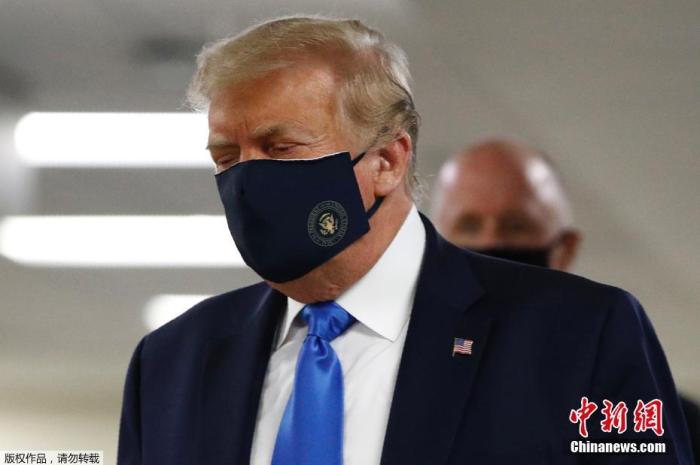Chinanews, December 24, a comprehensive report, US President Trump rejected the "National Defense Authorization Act" (NDAA) on December 23, which authorizes $740 billion in expenditures and outlines the Pentagon's policies.
At present, the US House of Representatives is expected to vote again on the 28th, and the Senate is also expected to hold discussions on the 29th.
Data map: US President Trump.
According to reports, Trump has repeatedly expressed through social networking sites that he will veto the National Defense Authorization Act for the 2021 fiscal year.
Ten days after the bill arrived at the White House, Trump formally exercised his veto power on December 23 and returned the bill to the House of Representatives.
Trump said in a statement that the bill failed to include key national security measures, the provisions contained in it did not respect American veterans and military history, and that it contradicted the efforts of the US government's national security and foreign policy actions.
According to the report, Trump also reiterated his dissatisfaction that the bill did not modify Article 230 of the Communications Regulation Act.
Clause 230 mainly provides network platform operators with exemption from infringing information or inappropriate content of others, and allows content review.
The report pointed out that according to regulations, after the president exercises the veto power, if Congress re-votes and passes the bill with an absolute majority of two-thirds or more in the Senate and House of Representatives, it will be able to overthrow the president's veto power and let the bill take effect.
Currently, the House of Representatives plans to vote on the 28th, and the Senate is expected to meet on the 29th to discuss.
On December 8, the National Defense Authorization Bill was passed in the House of Representatives with 335 votes in favor and 78 against; then on the 11th, the Senate passed with 83 votes in favor and 14 against.
The analysis said that this shows that the bill has broad support from members of the multi-party Congress.
The re-voting result of Congress has a chance to overturn Trump's veto.
The US National Defense Authorization Act has been passed into law for 59 consecutive years because it also authorizes dozens of special allowances and bonuses for service personnel, military construction projects, and training programs.

